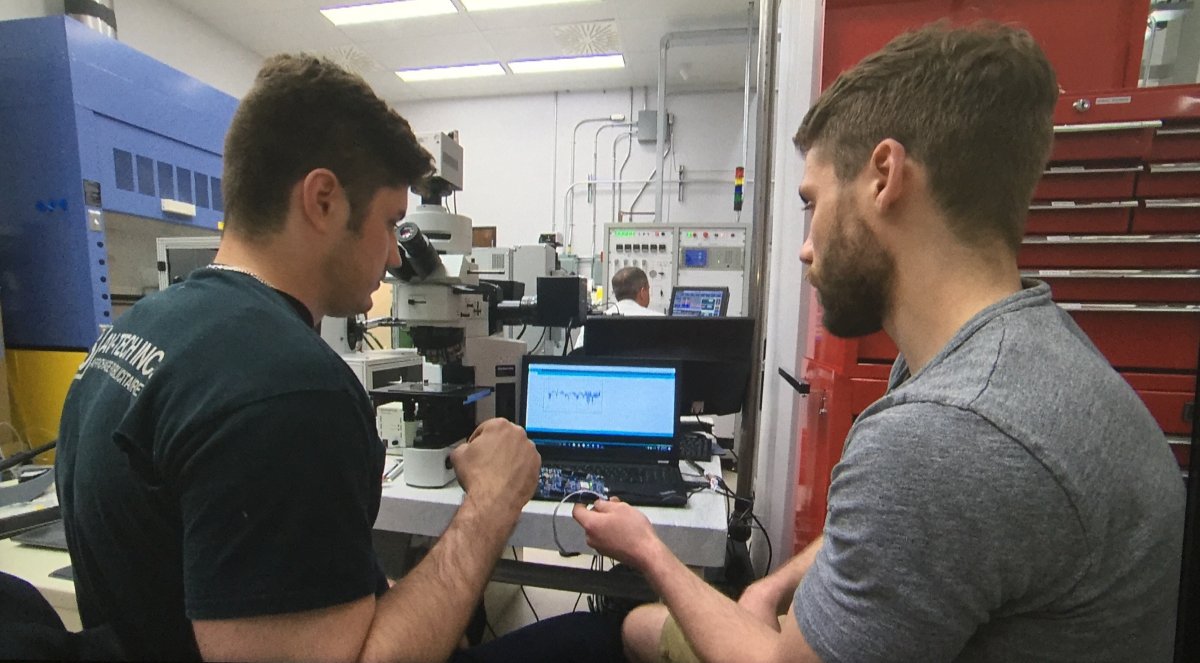Researchers at Université Laval in Quebec City have created a T-shirt that monitors the wearer’s respiratory rate in real time.

READ MORE: How hackers may have hijacked your PVR to cripple the internet
The new technology is expected to pave the way for manufacturing clothing that could be used to diagnose respiratory illnesses and monitor people suffering from asthma, sleep apnea or chronic obstructive pulmonary disease.
READ MORE: Future unclear for new Quebec doctors
“They want something extremely comfortable. Comfort is the utmost priority; something completely discreet that doesn’t require any electrodes,” explained Dr. Stepan Gorgutsa, a Laval University physicist and researcher.
Similar technology exists to measure heart rate, but until now, there was nothing for the respiratory system.
READ MORE: Canadian sex toy maker settles $4M lawsuit claiming We-Vibe tracked private data
Gorgutsa began looking at optical fibres, most commonly used to power the Internet, as a solution.
“We benefit from this expertise we have from the telecomm industry,” he explained.
Gorgutsa and the Laval team were able to create a fibre antenna thin enough to fit comfortably into a t-shirt.
“When you exhale and when you inhale, this movement, both mechanical, and the change in the volume of the air, will actually alter the frequency of the antenna,” Gorgutsa said.
READ MORE: Electronics all over your home could be spying on you. Here’s how to stop it
With help from an engineering student, they’ve also developed an electronic adapter to send the data through Bluetooth.
Soon, they hope nurses will be able to monitor if a sleeping baby stops breathing with a smartphone app.
READ MORE: Internet-connected toys are cool, but not worth the risk to your child’s privacy, experts say
“Athletes, it could be the elderly, it could be emergency responders, such as firefighters,” said Gorgutsa.
Researchers say they have months of testing to do before going to the FDA and Health Canada for approval.






Comments